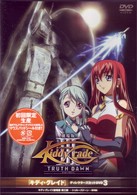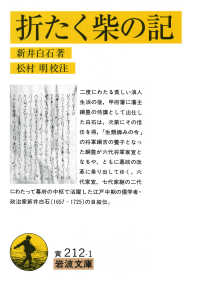- ホーム
- > 洋書
- > 英文書
- > History / World
基本説明
New in paperback. Hardcover was published in 2010. The narrative of the First World War has now become dominated by shell shock yet remembering the First World War as an unrelenting narrative of soldiers driven to madness provides us with a very partial picture.
Full Description
This title offers a genuinely new insight into the lives of shell-shocked soldiers both during and after the Great War. Shell shock achieved a very high political profile in the years 1919-1922. Publications ranging from "John Bull" to the "Morning Post" insisted that shell-shocked men should be treated with respect, and the Minister for Health announced that the government was committed to protecting shell-shocked men from the stigma of lunacy. Yet at the same time, many mentally-wounded veterans were struggling with a pension system which was failing to give them security. It is this conflict between the political rhetoric and the lived experience of many wounded veterans that explains why the government was unable to dispel the negative wartime assessment of official shell-shock treatment. There was also a real conflict between the government's wish to forget shell shock whilst memorialising the war and remembering the war dead. As a result of these contradictions, shell shock was not forgotten, on the contrary, the shell-shocked soldier quickly grew to symbolise the confusions and inconsistencies of the Great War.
Contents
IntroductionChapter 1: Shell shock and weak nervesChapter; 2: Encountering Shell-shocked menChapter; 3: Lest we forgetChapter; 4: Lunatics and lunacy reformChapter; 5: No longer 'nerve-wracked boys'Chapter; 6: Shell shock and veterans' voicesBibliographyIndex.







